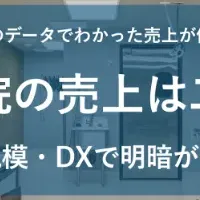
Lupus Foundation of America Grants to Enhance Pediatric Lupus Research and Care
Advancing Pediatric Lupus Research: Grants from the Lupus Foundation of America
In a significant move to bolster research in pediatric lupus, the Lupus Foundation of America (LFA) has recently announced the recipients of its grants aimed at enhancing the understanding and management of this complex autoimmune condition in children. This year's grants have been awarded to Dr. Nayimisha Balmuri from Johns Hopkins University and Dr. Rebecca Sadun from Duke University, two experts dedicated to exploring critical aspects of childhood lupus.
Understanding the Impact of Air Pollution on Lupus
Dr. Nayimisha Balmuri's research project is particularly focused on examining how air pollution affects the severity of Systemic Lupus Erythematosus (SLE) in pediatric patients. Studies suggest that environmental factors, including air quality, play a crucial role in the health outcomes of children with lupus. In her study, Dr. Balmuri aims to identify how specific particles found in polluted air contribute to disease severity and whether socio-economic factors, such as poverty, exacerbate these health outcomes.
This research not only aims to advance the scientific community's understanding of lupus but also seeks to address health disparities in affected children. By uncovering the links between environmental triggers and lupus severity, Dr. Balmuri hopes to inform policies and interventions that could minimize exposure to harmful pollutants, thereby improving the quality of life for young lupus patients.
Enhancing Medication Adherence in Young Patients
On another front, Dr. Rebecca Sadun's work is focused on a pressing challenge in childhood lupus: medication adherence. Many young patients struggle to stick to their prescribed treatment regimens, and ensuring that they take their medications is crucial for successful disease management and improved outcomes. Dr. Sadun's research will adapt an existing questionnaire to better understand the barriers children face in adhering to their medications. Furthermore, by creating a companion parent questionnaire, she aims to assess family dynamics that might affect treatment adherence.
As noted by Dr. Andrea Knight, a member of the LFA Medical-Scientific Advisory Council, funding for pediatric lupus research can be sparse due to the relatively smaller population of pediatric patients compared to adults. Yet, the need for targeted research in childhood lupus remains critical. The impacts of lupus during formative years not only affect immediate health but also the long-term development of young patients.
The Importance of Pediatric Lupus Research
The Lupus Foundation established the Michael Jon Barlin Pediatric Research Program to honor a promising life cut short by lupus complications. This initiative reflects the foundation's commitment to advancing pediatric research. According to Joy Buie, Vice President of Research at LFA, children diagnosed with lupus frequently experience more severe cases and face unique challenges during their growth and development.
Topics Other)










【About Using Articles】
You can freely use the title and article content by linking to the page where the article is posted.
※ Images cannot be used.
【About Links】
Links are free to use.